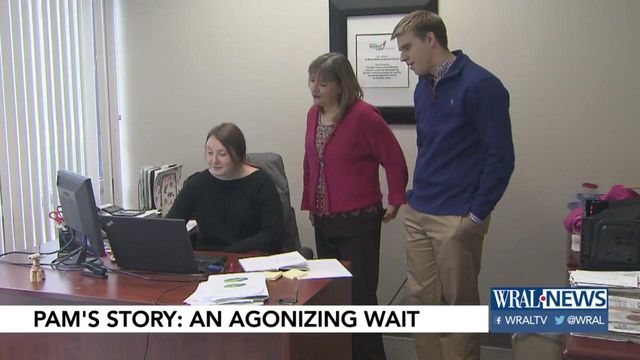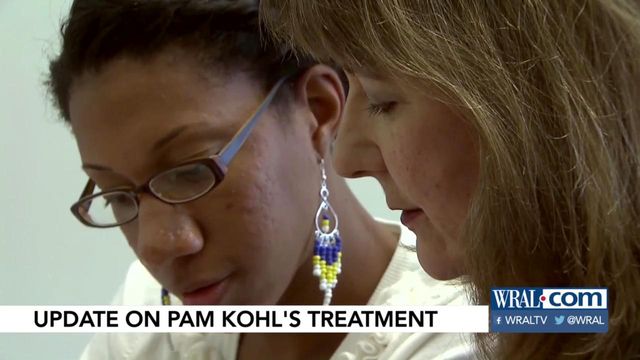Stable for now, Kohl's cancer journey an inspiration to even her doctors
Pam Kohl, the executive director of Susan G. Komen North Carolina Triangle to the Coast chapter, is living with metastatic breast cancer. Her regular bone scan, PET scan, CT scan and blood work are important markers to track whether her cancer is stable, or whether treatments have stopped working.
Posted — UpdatedPam Kohl lives her life 12 weeks to 12 weeks. Every 12 weeks, a cold, radioactive liquid is pushed through her veins to paint an image of the cancer in her body.
Kohl, the executive director of Susan G. Komen North Carolina Triangle to the Coast chapter, is living with metastatic breast cancer. Her regular bone scan, PET scan, CT scan and blood work are important markers to track whether her cancer is stable, or whether treatments have stopped working.
"It's kind of odd looking forward to your scan," she says, "but you just want to get it done. This will tell us whether the treatment that I'm on is still working."
The wait for those results can be agonizing.
"For me, this one has been more tough because I'm two years," Kohl said.
It has been that long since she learned her breast cancer had returned and spread. That is also about how long existing treatments tend work to stall the advancement of her kind of cancer.
During those two years, Dr. Jeremy Force has been Kohl's oncologist.
"No matter what, these therapies start to not work," he said. "Cancer can get smart and can change in her body. We're still trying to learn how this occurs."
Kohl has undergone radiation to stabilize the growth of tumors in her chest and in a hip. She also takes oral chemotherapy. It is that treatment that she is afraid will soon stop being effective.
"It's not devastating to have to leave your first treatment, because now there is a second treatment, a second line and hopefully a third line," she said. "Just the longer you can stay on a treatment the better."
Through her work at Komen, Kohl knows more treatments are in the pipeline. Working with those novel therapies was one of the draws for Force at Duke.
"I think it's important that most breast cancer patients or cancer patients in general try to seek out an opinion at an academic institution or at a minimum a place where they have those clinical trial opportunities," he said.
Force is also inspired by Kohl's unique journey, while she is thankful for the women in clinical trials paving the way for patients like her.
"Every day at Komen, (you hear) positive stories and scary ones," she said.
Related Topics
• Credits
Copyright 2024 by Capitol Broadcasting Company. All rights reserved. This material may not be published, broadcast, rewritten or redistributed.






